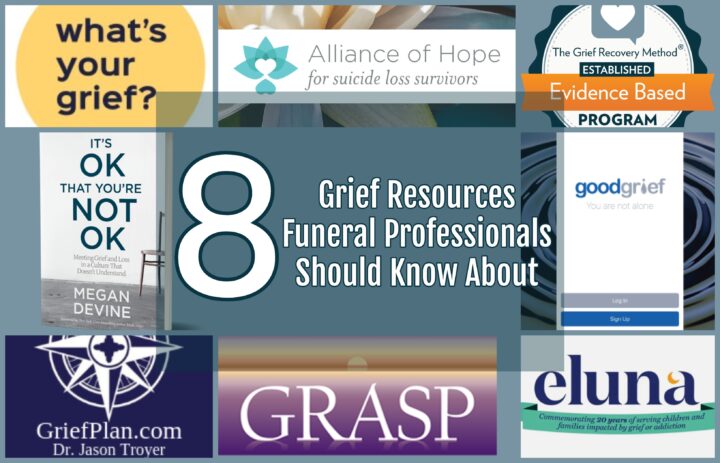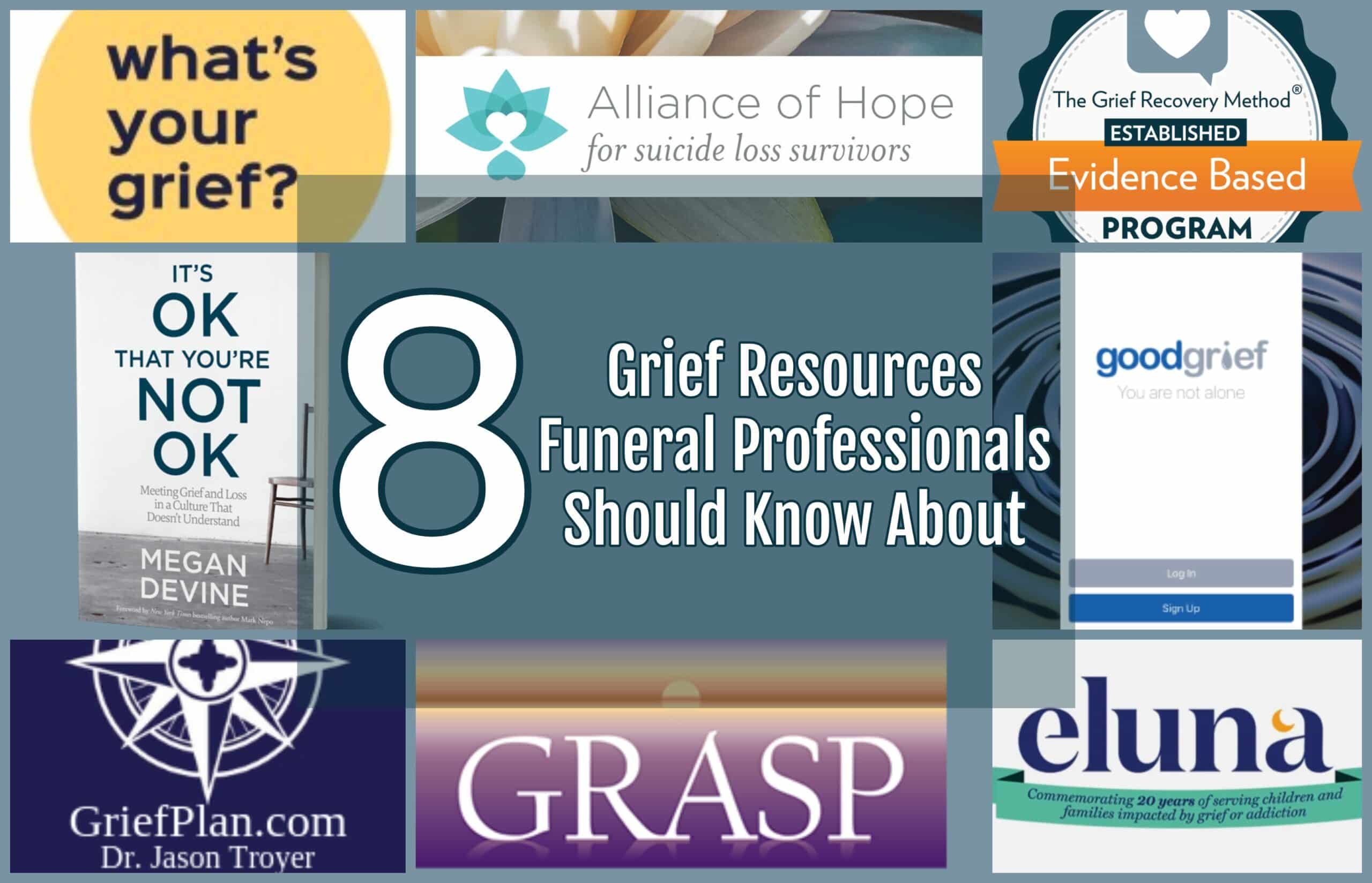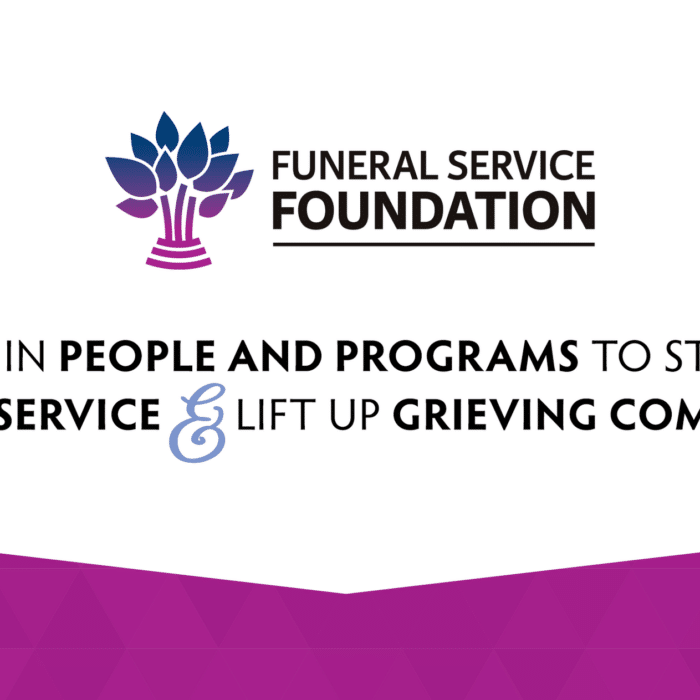
Beyond the formalities and practicalities of organizing funeral services, funeral directors play a vital role in guiding families through the intricate process of grieving. Your connection with families goes further than orchestrating ceremonies. During times of darkness, funeral directors often serve as an initial beacon of support. Grieving is a complex experience, with each individual navigating a unique journey through loss. The question arises: How does one effectively guide someone through such a complicated and individual journey?
Funeral directors can provide meaningful advice and support to grieving families by staying well-informed about contemporary grief resources and networks. It is imperative to be well-versed in this knowledge. There are many philosophies related to grief, some beneficial while others are mere platitudes. Recognizing the need for accurate information is crucial, considering the abundance of misleading content on the topic. Grief resources for funeral homes must be thoroughly vetted to ensure the information provided to families will set them on the right path.
We now know that grief is not an ordered process that you can somehow graduate from. It is not linear, predictable or something that one needs to “get over.” How many people have been emotionally scarred from this limited understanding of grief? Yet, even today you will find articles published that reference grief phrases or stages and pathologize it as though it is a temporary condition or disorder. Most of these articles are well-intended, but they perpetuate a lot of false ideas and opinions surrounding grief. These outdated and ineffective theories can end up doing more harm than good by keeping people stuck in their grief, feeling as though they cannot move forward.
In this blog post, we aim to spotlight 8 grief support resources that we believe should be at the top of every funeral home’s reference list. Drawing from over 15 years of experience covering death and grief-related topics, we firmly believe these organizations have made a powerful impact on reshaping our cultural understanding of grief. Read on to uncover a toolkit of grief resources for funeral homes you can use to help guide families to the right places to gain support.
8 Essential Grief Resources for Funeral Homes
1. The Grief Recovery Method
The Grief Recovery Method is a structured program aimed at aiding individuals in coping with and overcoming grief. Conceived by John W. James in the aftermath of his own personal loss, this method is distinguished for its systematic and action-oriented approach to addressing the emotional anguish associated with bereavement. Widely recognized as the sole “evidence-based” grief recovery program, the methodology owes its distinction to the extensive research. Through acclaimed grief literature, numerous support groups worldwide, and a wide-reaching online community, the Grief Recovery Method has proven efficacious, assisting countless individuals worldwide in navigating the challenges of loss.
“My research has told me that the value of the GRM program lies in the fact that it was created by grievers for grievers and that is why I believe (and now have shown through my research) that it works. As far as what the GRM offers grievers, it provides them with a tried and true program that has been continuously refined and used time and time again over the last 40+ years, across multiple countries, AND in multiple languages, to help them heal from loss(es). For me, the GRM is not just a program but a way of life. Once you’ve been through a program, your life continues to be influenced and improved by the skills and tools you receive and learn how to use.”– From the blog post, Dr. Rachael D. Nolan Speaks About Her Research Concerning The Grief Recovery Method As An Evidence Based Program For Taking Action
2. WhatsYourGrief.com
Created by Litsa Williams and Eleanor Haley, WhatsYourGrief.com is an online resource website dedicated to providing information and support for individuals coping with grief and loss. The content on the site often combines professional expertise with personal experiences, aiming to provide practical and compassionate support for those navigating the challenges of grief. The website name is such a fitting description for the content it provides, because the site creators understand that everyone grieves differently. There is a library of useful and current information on grief with posts exploring every aspect of loss. From the wealth of content, it provides, to the user-friendly interface, to the community of grievers who comment on every post, WhatsYourGrief.com is a truly an invaluable resource. Litsa and Eleanor have also created webinars, podcasts and online videos to help reach as many grievers as possible with their valuable content.
“Why are the “five stages” of grief the one and only thing most people know about grief? If I had to guess it is because they put order to something that generally scares the crap out of us. Grief is messy and disorganized and makes us feel like we are going crazy. But if we could just put an order to it. If we could measure it and analyze it and fit it into tidy little stages it sure would feel less scary. It is comforting to imagine it has a neat little beginning, middle, and end. As we have written about many times before, unfortunately it isn’t quite that simple.”-From the blog post, “Seeing Order in the Aftermath of a Loss”
3. Refuge in Grief
For someone who feels like they are drowning after the loss of a loved one, reading the words of Megan Devine truly feels like a breath of fresh air. Her best-selling and highly praised book, It’s Okay That You’re Not Okay, has helped countless people to feel less alone in their grief, this writer included. Megan’s story and powerful word have fundamentally changed my own personal outlook on grief. Her powerful writing conveys the different physical, emotional, mental and spiritual reactions a person may have in response to a major loss in their lives. I have gifted her book to multiple people in my life. It is a must-read for anyone dealing with loss.
Megan focuses on two objectives: supporting those who are bereaved and also educating those who want to support others who are grieving. One of the things she really encourages is not trying to fix or correct, to just be present with someone without trying to take their pain away. Her dissection of everything that is wrong with our grief-averse culture and how we respond to those who are mourning is incredibly astute. On Megan’s website, RefugeinGrief.com she provides additional support resources for grievers. This includes an extensive blog that complements her book, guided grief journals, automated support text messages, podcasts and monthly live Q&A sessions.
“The reality of grief is far different from what others see from the outside. There is pain in this world that you can’t be cheered out of. You don’t need solutions. You don’t need to move on from your grief. You need someone to see your grief, to acknowledge it. You need someone to hold your hands while you stand there in blinking horror, staring at the hole that was your life. Some things cannot be fixed. They can only be carried.” –A passage from It’s Okay That You’re Not Okay
4. Alliance of Hope for Suicide Loss Survivors
During a recent NFDA Convention, I had an opportunity to speak with the family that founded this organization. It was deeply moving to hear about how dedicated they were to helping survivors of suicide find peace. They are truly wonderful people doing incredible work to help others. Following her stepson’s tragic suicide, founder Ronnie Susan Walker was driven to help others who were suffering similar losses. Ronnie, along with her daughter Heather Shadur and a team of remarkable individuals have created a powerful resource for those impacted by a suicide loss.
In addition to providing a great deal of helpful information and an active blog presence, their website offers an active online support forum. This forum gives survivors a place to come together, share their stories or feelings, and feel less isolated in the complex grief they are experiencing. During the convention, I can recall seeing firsthand the comments coming in real-time on their forums from people stating how much the Alliance’s resources have helped them.
“Our online forum transcends time and distance, offering a culture of kindness, hope, and understanding to people who have lost loved ones to suicide. Operating like a 24/7 support group, our forum is supervised by a mental health professional and moderated by a trained team of loss survivors. Members can read and comment, share their stories, and connect with other suicide loss survivors.”-From the Alliance of Hope website.
5. GriefPlan.com
ASD had an opportunity to spend time with Dr. Jason Troyer, the creator of GriefPlan.com, when he came to our office to speak to our staff about how grief impacts their lives. It was during these interactions that we witnessed firsthand Dr. Troyer’s extensive expertise and saw how deeply driven he is to help others with his profound knowledge of grief. His online program gives grievers immediate and easy access to his valuable grief support resources. The program is designed with actionable steps including downloads and recommended activities that are key steps for healing. Grievers are encouraged to remain actively involved in their own process. Additionally, Dr. Troyer’s program provides opportunities to connect with others who are experiencing similar losses.
For those seeking grief resources for funeral homes to recommend to families who don’t know how to find a compassionate and trusted professional, look no further than Dr. Troyer. He has extensive expertise and a great deal of experience with helping funeral homes to better support families. In fact, beyond his grief program, Dr. Troyer also offers many other services specifically for funeral homes including grief and preneed booklets, inspirational social media content, and speaking presentations or webinars. Funeral homes across the country rely on his proven expertise and resources.
6. Eluna
Children have often been called the forgotten grievers. Most people don’t realize just how many young people today are impacted by grief. For us here at ASD, supporting the organizations that help bereaved children has always had a special place in our hearts. For many years, we have proudly supported Eluna in their effort to help children and families impacted by grief or addiction. The foundation’s mission is to provide comfort, hope and healing to children impacted by loss or addiction through its Camp Erin and Camp Mariposa programs. In addition to offering camps across the country for children, the organization also has compiled an online resource library with a huge collection of helpful articles on childhood grief.
“It’s often said that kids experience a range of emotions, as do adults, but in maybe a quicker fashion, and go from one emotion to the next very quickly. So, there’s no one way that anybody grieves, but we do know that with support and with a feeling of community and belonging, kids really can thrive and feel a lot more hopeful about their circumstances.”-From the article, At Camp Erin, grieving kids don’t move on. They move through
7. GRASP (Grief Support After An Overdose Loss)
This one is a bit more personal. In 2017, I penned an essay titled, 7 Ways Grief is Compounded by an Overdose Loss’about my own personal experience losing my father to an overdose when I was a teenager. On my list, one of the seven things I mentioned was how it was hard for our family, especially my mother, to feel understood in the grief support groups we had attended. This is due to the specific emotions, like anger and guilt, that often accompany a substance abuse death. The stigmatization of overdose deaths also made it difficult for our family to share our story and reach out to others for support.
What happened next, I never expected. Emails and phone calls from all across the country started to flood in from people who had a similar experience and related to what I wrote. Many of them wanted to know if I knew of any support groups that were specific to an overdose loss. With the support of ASD’s owners, I was able to conduct some research into the different resources available. I was very driven to do this because I strongly believe this type of loss is different than any other type of loss. It carries complicated emotions and unresolved feelings often unaddressed in typical grief support settings. Eventually, I discovered an organization known as GRASP (Grief Support After An Overdose Death) which I have referred many others to as well.
GRASP is the only one organization that exists offering overdose grief support on a national level. Founded on the same principle that drove me to share my personal blog post, this community acknowledges the layered grief that follows a loved one’s overdose. Finding solace comes from connecting with those who have undergone a similar loss. GRASP was created by a couple whose 20-year-old daughter died from a drug overdose in 1994, leading the couple to launch an awareness campaign. Over time, this has grown into a peer-to-peer support network with 120 chapters across the U.S. and Canada. GRASP also has an active online Facebook community with more than 14,000 members. At least once a month, I refer someone to their website. I strongly feel it is a valuable grief resource for funeral homes as many directors see firsthand the increase in drug-related deaths and the trauma it leaves behind.
8. The Good Grief App
Rounding out our list of grief resources for funeral home is the first and only social network for grievers, the Good Grief app. The app was born when two women who were both mourning a recent loss began texting and discovered the power of connection. Robynne Boyd and Kim Libertini created the app in 2017, allowing users to connect through one-on-one in-ap texting and photo sharing. The app also helps people to connect with those who have experienced the same type or cause of loss. The Good Grief app does not rely on any type of guided therapy our counseling. It is simply a software program that facilitates connections between those faced with a major loss in their lives.
“Chatting with someone steeped in grief felt different than speaking with friends. We related to each other’s inability for small talk. Our relative anonymity allowed us to be candid without worrying about putting on a brave face ― the way we probably would have had to do with our friends or family members….About one year into chatting, we realized we had happened upon something cathartic and wanted to offer the possibility to others. Together we launched an app called Goodgrief that enables people reeling from life’s big losses ― suicide, stillbirth, illness, accidents, miscarriage and divorce ― to find one another, chat and remember they’re not alone.”–From the HuffingtonPost Essay, I Found An Unexpected Way To Process And Survive My Intense Grief: Texting A Stranger
Thank you for reading. Please leave a comment and share which individuals, organizations, or website you think are beneficial grief resources for funeral homes.
Related Reading
More than Morticians: The Surprising Number of Jobs Funeral Directors Juggle
Guest Blog Post: Helping Families Cope With the Complex Grief of Overdoses
Feeling Burned Out as a Funeral Director? Here’s Why and What You Can Do About It


